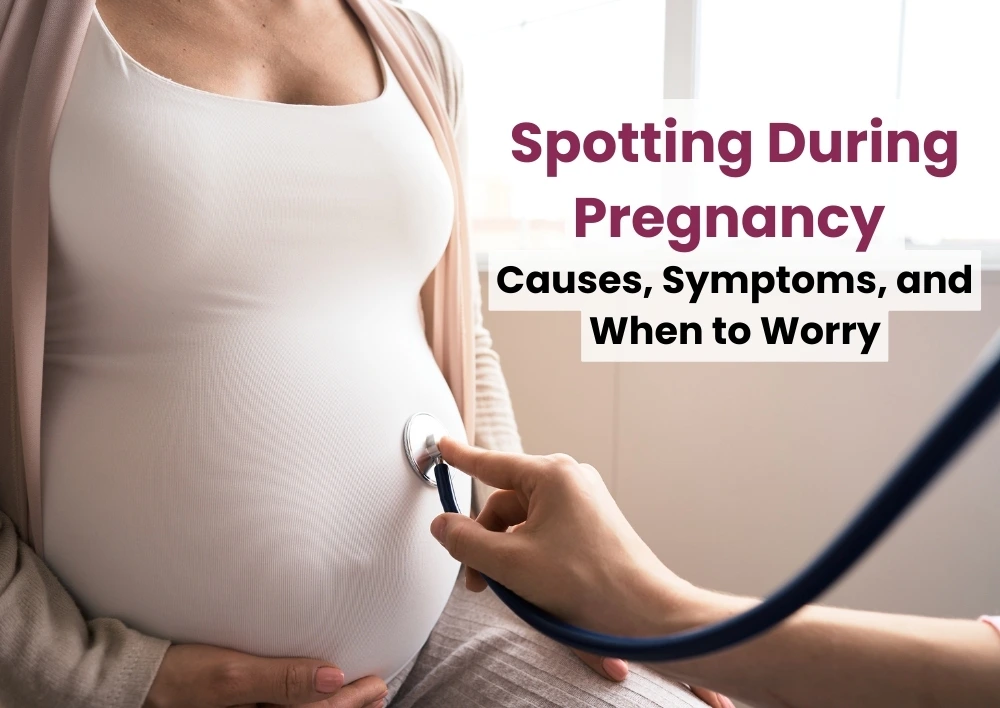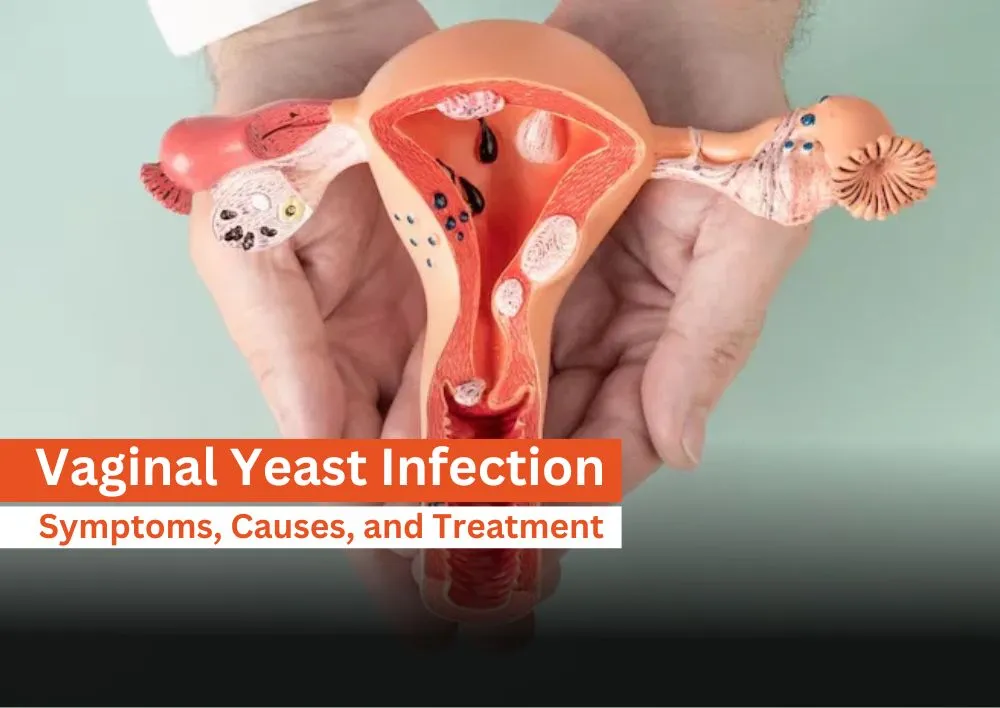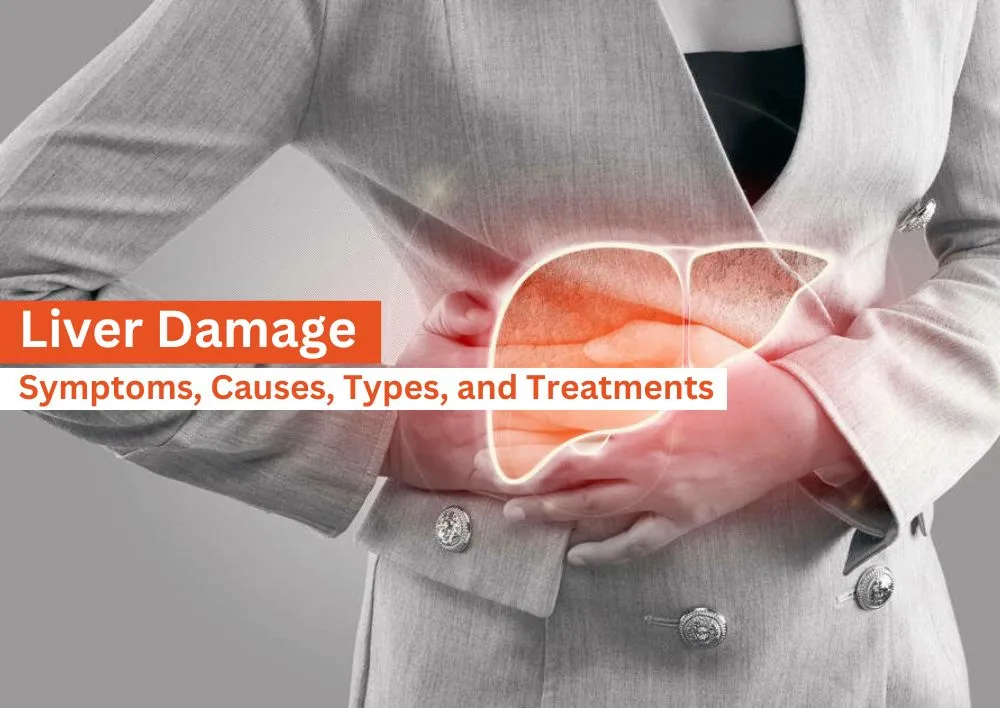Spotting During Pregnancy: Causes, Symptoms, and When to Worry
Pregnancy is an exciting journey but can also bring moments of concern or uncertainty. One such moment is noticing light bleeding, or "spotting" during pregnancy. While noticing blood during pregnancy can be alarming, it’s important to remember that it’s not always a sign of a serious problem. Blood spotting during pregnancy is common, especially in the early stages. In this blog, the best gynecologist in Gurgaon at Miracles Apollo Cradle shares insights into spotting during pregnancy, its causes, symptoms, when to seek medical help, and how to take care of yourself.
What is Spotting During Pregnancy?
Spotting in pregnancy refers to light bleeding during pregnancy from the vagina that is much lighter than a typical menstrual period. It usually appears as pink, red, or brown discharge. While spotting in early pregnancy is normal, it can still be concerning. Although spotting may cause anxiety, it’s not always a cause for alarm. Many women experience spotting during pregnancy and still go on to have healthy pregnancies. Understanding its causes and recognizing when it’s a normal part of pregnancy is key to maintaining peace of mind.
How Common is Spotting During Pregnancy?
Research indicates that 15-25% of women experience light spotting during pregnancy, particularly in the first trimester, and it typically does not signal a serious issue. However, every pregnant woman needs to know when spotting is normal and when it could indicate a problem.
Causes of Spotting in Pregnancy
Spotting during pregnancy can happen for several reasons, many of which are completely normal and not a cause for alarm. Here are some of the common causes of slight bleeding while pregnant:
-
Implantation Bleeding: One of the earliest causes of spotting is implantation bleeding. This occurs when the fertilized egg attaches to the uterus lining, causing light bleeding. Implantation bleeding usually happens around 6-12 days after conception, and the bleeding is usually light and short-lived.
-
Cervical Sensitivity: During pregnancy, there is an increased flow of blood to the cervix, making it more sensitive. Everyday activities such as sexual intercourse, a pelvic exam, or even strenuous exercise can irritate the cervix and cause light spotting.
-
Hormonal Changes: Your body goes through significant hormonal changes during pregnancy, especially in the early stages. These hormonal transformations can sometimes lead to light bleeding or spotting as your body adjusts to the increased levels of hormones like progesterone.
-
Subchorionic Hemorrhage: This is one of the more common reasons for spotting in the first trimester. Subchorionic hemorrhage occurs when blood collects between the uterus and the outer fetal membrane. While it can sound scary but often resolves on its own without causing harm to the pregnancy.
-
Infections: Spotting can also be caused by infections, such as a urinary tract infection (UTI), yeast infection, or sexually transmitted infection (STI). These infections can irritate the cervix or vagina, leading to light bleeding. If you notice any unusual symptoms like itching, burning, or discomfort, it’s important to consult with your gynaecologist.
-
Placental Issues: Later in pregnancy, spotting may be related to issues with the placenta such as Placenta previa or placental abruption. Both conditions require immediate medical attention, so it’s important to be aware of any significant changes in your spotting pattern.
-
Miscarriage or Ectopic Pregnancy: Though most spotting during pregnancy is harmless, it can sometimes indicate a miscarriage or ectopic pregnancy. Miscarriage generally occurs within the first 12 weeks of pregnancy and may be accompanied by heavy bleeding, cramping, or tissue passing through the vagina. On the other hand, Ectopic pregnancy occurs when the fertilized egg implants outside the uterus, which is a medical emergency. If you experience sharp pain, dizziness, or heavy bleeding, contact the gynaecology doctor near you right away.
Symptoms of Spotting During Pregnancy To Watch For
it’s important to know when it might indicate a more serious issue. Here are some symptoms of spotting during pregnancy to watch for:
-
Heavy Bleeding: If you are soaking through a pad for an hour or passing large clots, it’s important to consult a gynaecologist.
-
Severe Cramping: Strong abdominal pain, especially if accompanied by heavy bleeding, could signal a miscarriage or other complications.
-
Bright Red Blood: While spotting during pregnancy may be pink, brown, or red, heavy bright red bleeding may be a sign of a more serious condition.
-
Dizziness or Fainting: Feeling lightheaded or faint, especially with spotting, could be a sign of an ectopic pregnancy or other complications.
-
Fever or Chills: Spotting accompanied by fever or chills could indicate an infection that requires immediate medical attention.
When to Seek Medical Help
Here are certain situations where you should contact your gynaecologist immediately:
-
If the spotting turns into heavy bleeding.
-
If you experience severe cramping
-
If you experience sharp abdominal pain.
-
If the spotting is accompanied by dizziness, fainting, or fever.
-
If you suspect a placental issue, especially in the second or third trimester.
Your gynaecologist may perform an ultrasound or other tests to ensure that you and your baby are healthy.
How to Take Care of Yourself During Pregnancy?
If you experience spotting during pregnancy, here are some self-care tips:
-
Rest: Take it easy and avoid strenuous activities. Take proper rest to prevent further irritation and reduce stress on your body.
-
Avoid Sexual Intercourse: If you have noticed spotting after sex, abstain from sexual intercourse until the spotting stops and your doctor gives you the go-ahead.
-
Stay Hydrated: Drinking plenty of water is always important, but it’s especially important during pregnancy to keep your body functioning properly and reduce the risk of complications.
-
Monitor Your Symptoms: Keep track of your spotting, noting its color, amount, and any associated symptoms. This information can be helpful for your doctor in determining the cause and if any further action is required.
-
Follow Medical Advice: If your gynecologist gives you specific instructions regarding rest, medication, or avoiding certain activities, be sure to follow them properly. Regular prenatal check-ups are important for monitoring your pregnancy and addressing any concerns early.
Conclusion:
Spotting during pregnancy can be a worrying experience, but in most cases, it’s nothing to be overly concerned about. Understanding the common causes, recognizing when it’s normal, and knowing when to consult a gynaecologist can give you peace of mind during your pregnancy. By staying informed and taking care of yourself, you can ensure a healthy and happy pregnancy journey. If you experience spotting or any unusual symptoms, contact the best gynaecologist near me at Miracles Healthcare Gurgaon, for expert care and guidance at every stage of your pregnancy.





_in_Pregnancy.webp)







Was the information useful?
0 0